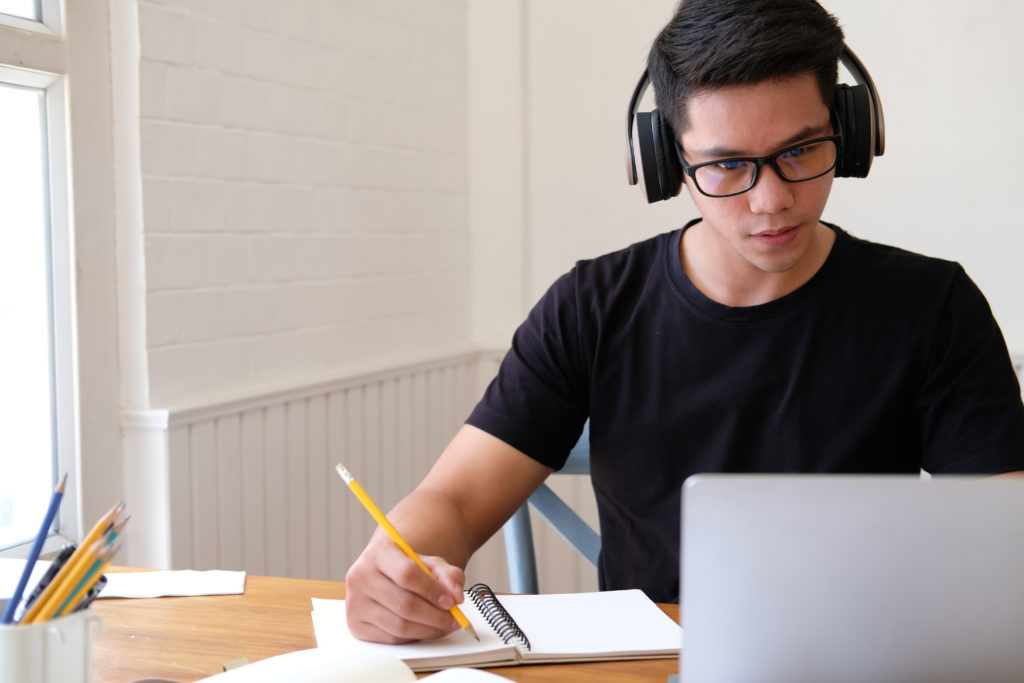Quick Hits
Daily brief research updates from the cognitive sciences

Studying online
We’d all like to be able to learn easily. Read something and remember it, listen in on a call and never forget anything, but we all know, well the vast majority of us, that it isn’t always that easy. Over the years and decades many practises have also been developed to help learning, ranging from learning in your sleep to meditative methods. But do these really help?
Well, this is what Shana Carpenter et al. of Iowa State University wanted to find out. To do this they reviewed and analysed over 200 studies ranging over 100 years to find some clear answers. And the results?
The results show that basically two strategies are the most effective and therefore the most important.
These are not sexy new techniques – in fact quite boring. They are spacing and retrieval practice. That’s it!
Spacing is the concept of spacing learning out into more bite-sized chunks. For example, in one study medical students received training on surgery training over three weeks vs. one intensive day. Those in the spaced learning group performed better one week after training had finished but also, importantly, one year later.
I have reviewed spaced, or punctuated, learning previously. I have also reported on brain processes and fatigue during mini learning and break phases (here and here).
The second technique is also a low tech, old-fashioned, and effortful: the technique of learning retrieval. This simply means trying to remember what you have learned. This is the high effort version and probably the one we also try to avoid, particularly when by ourselves. This is more effective than the easy method which is just rereading your notes or the textbook again. The important part seems to be the active retrieval part, actually making an effort to get it out again.
So, this on one hand is a bit boring, no new sexy techniques. It is also really important – two simple techniques will improve learning for anyone and anyone can do it!
So, if learning something new, space it out it bite-sized chunks, and make an effort to remember what you covered and learned.
That’s it, that simple.
Now let’s see if I can remember what I have just written…

Andy Habermacher
Andy is author of leading brains Review, Neuroleadership, and multiple other books. He has been intensively involved in writing and research into neuroleadership and is considered one of Europe’s leading experts. He is also a well-known public speaker, speaking on the brain and human behaviour.
Andy is also a masters athlete (middle distance running) and competes regularly at international competitions (and holds a few national records in his age category).
References
Shana K. Carpenter, Steven C. Pan, Andrew C. Butler.
The science of effective learning with spacing and retrieval practice.
Nature Reviews Psychology, 2022; 1 (9): 496
DOI: 10.1038/s44159-022-00089-1
More Quick Hits
When Cognitive Games Do Make You Smarter
Quick HitsDaily brief research updates from the cognitive sciences ognitive games have been around for many years now – the first wave of popularity came with Nintendo’s “brain jogging” almost two decades ago now. These games have claimed that they...
How Walking Makes Some People “Super Taskers”
Quick HitsDaily brief research updates from the cognitive sciences hose of you who have followed my writing will know that I have reported regularly on the amazing benefits of exercise and walking on the brain, body, and cognition. However, though...
Older People are Better at Responding to Distress
Quick HitsDaily brief research updates from the cognitive sciences e may have some cliched ideas of older people like the grumpy or angry old man, or woman (but it is often a man). However, research continually shows the opposite. Namely that...
Guided Play Highly Effective for Learning in Children
Quick HitsDaily brief research updates from the cognitive sciences ood news for some and bad news for traditionalists in education. Some believe that starting education early and using classical and traditional learning activities is the best way...
Childhood Fitness Improves Mid-Life Cognition
Quick HitsDaily brief research updates from the cognitive sciences always find these long-term studies fascinating. Imagine launching study and not knowing what the outcomes will be for another 30 years! This is precisely what this study did. It...
The Truth of “Work Hard, Play Hard”
Quick HitsDaily brief research updates from the cognitive sciences e all know the phrase “work hard, play hard” and this drew my attention when I stumbled across some research actually looking into this - and whether this is a good thing or bad...






